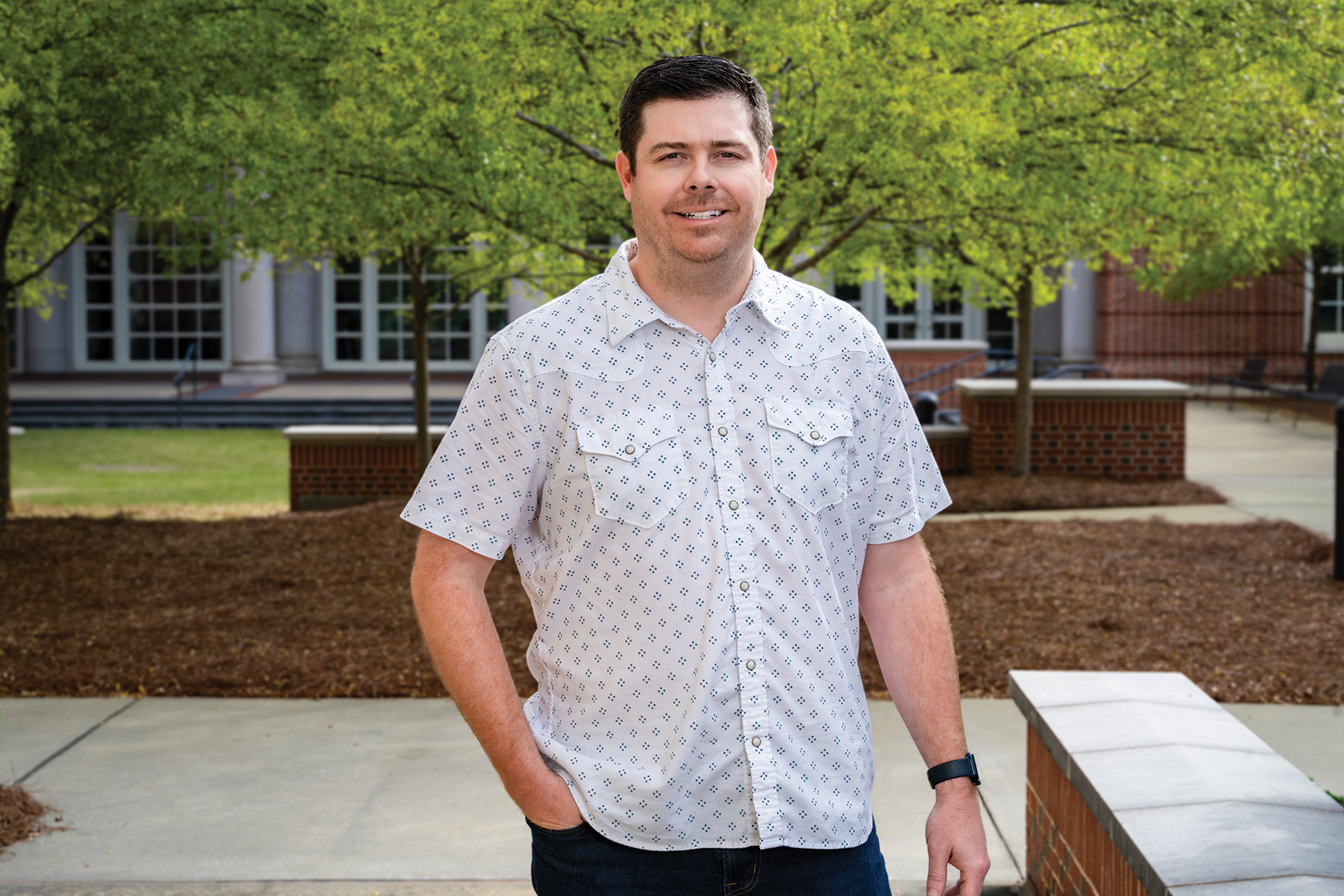
KEVIN HARWOOD ’07
Wireless Engineering
Wireless Engineering / CTO Tecovas
What brought you to Auburn to study engineering?
I grew up in a family of Alabama fans, but all of my close friends were Auburn fans. One of my friends’ families brought me to several Auburn games each year, and that’s when I fell in love with the school. The city, the atmosphere, the people — everything about Auburn felt right for me. I knew early on that I wanted to go to Auburn. In high school, I always dabbled with computers and programming. I remember getting my start programming on my TI-89 calculator during math class, and from that moment, I knew I wanted to pursue software engineering. The timing was perfect because Auburn had just launched its wireless engineering program right before I started. The program aligned perfectly with my interests, especially as I saw the potential in the rapidly evolving wireless space. I was also fortunate to earn a Vodafone scholarship for wireless engineering, which allowed me to attend Auburn on a full scholarship and focus fully on my education and passion for technology.
What’s the most important lesson you learned at Auburn?
Always be willing to hear new information and adapt your thoughts. Technology is always evolving, and that lesson has stuck with me throughout my career. Whether it’s staying on top of the latest trends or experimenting with emerging technologies like AI, I’m constantly consuming new information and looking for ways to apply it in meaningful ways. In a fast-moving space, you have to keep evolving if you want to stay ahead.
Tell us about your role as the chief technology officer at Tecovas.
I’m responsible for overseeing all technology and systems rolled out across the entire company. This includes everything from our website and the content management systems that power it daily, to the technology driving our retail operations—such as our point of sale (POS) and radio frequency identification (RFID) inventory systems. Essentially, technology touches every part of the business, and it’s my job to ensure that all these systems work together. One project I’m proud of is the launch of our ship-from-store initiative. This was a significant cross-functional effort and required collaboration with Shopify to ensure we had the right functionality in place. The impact on customer experience has been huge. It’s a win-win for both the company and our customers.
How have you managed to successfully apply your skill set across different industries?
My background in wireless software engineering has given me the opportunity to make an impact across multiple industries early in my career. The variety of clients I worked with early on greatly expanded my problem-solving skills. I was exposed to a wide range of industries, integrations and consumer challenges, which forced me to think creatively and develop solutions across different spaces. I believe my two greatest strengths are my ability to lead by example and solve complex problems, and those are skills I’ve honed across every industry I’ve worked. Whether in technology, retail or elsewhere, those abilities have helped me deliver results and grow as a leader.
What makes working in the apparel industry as an engineer unique?
On the surface, many directto- consumer (DTC) apparel companies don’t appear to be technology companies in the traditional sense—especially when compared to the tech startups you might find in Silicon Valley. But in reality, DTC startups rely on a variety of technologies to drive their business, and there’s a tremendous opportunity to transform these companies into “technologydriven” organizations. One of the unique challenges in this industry is recognizing the impact that technology can have and identifying the right problems to solve. The goal is to implement systems that empower employees to be more strategic in their dayto- day decisions. I aim to bring together technologies that make the easy things easy and the hard things possible, allowing teams to focus on high-value work rather than getting bogged down by inefficiencies. Another unique aspect of working in the apparel industry is the connection between technology and physical products. In retail, for example, deploying an RFID system to manage inventory almost feels like magic when you see it in action. There’s something very rewarding about building and scaling systems to support major events like Black Friday and Cyber Monday, knowing that everything has to work seamlessly under high pressure. At the end of the day, the most fulfilling part is seeing how passionate people are about the products we create. When you see customers connecting with something like western culture and cowboy boots, it makes the work feel incredibly worthwhile.
What is the most satisfying part of your job?
There are a few things that really stand out to me. First, laying out a strategy and implementing it piece by piece is incredibly rewarding. I’m a builder at heart, and seeing things come together, come to life and actually solve real problems is always a shot of adrenaline. It’s not just about the end result, but the process of building something from the ground up that makes a meaningful impact. I also take a lot of pride in leading small teams of passionate builders. Coming to work every day with a group of people who embrace challenges and seek out solutions is invigorating. It really drives an amazing team culture when everyone is pushing forward, tackling problems and finding innovative ways to move the company forward. That collective energy and shared passion for solving complex problems is what makes the job so fulfilling for me.